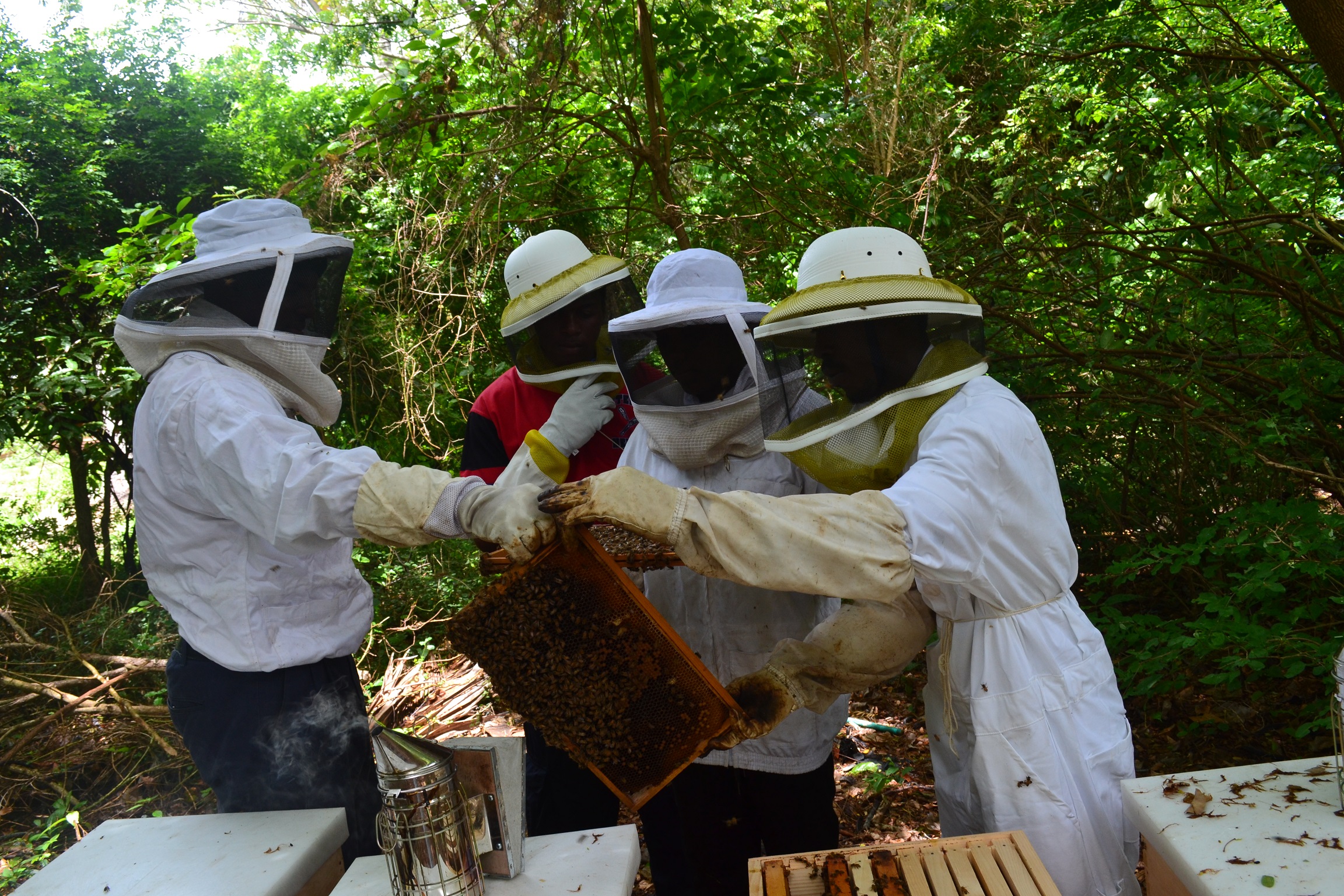

One of the main threats to the area in question is degradation as a result of the cutting of mangrove trees to use for income generating purposes. Apiculture was introduced as an alternative livelihood which will enable the members of the community to use the resources of the mangroves without damning it, thus leaving the mangrove forest intact.
Additionally, the establishment of bee hives in the area will benefit farmers in the surrounding area. Not only will the bees assist with the pollination and ultimate health of the mangrove forest, they will assist with the pollination of crops on farms in the surrounding area. Through this, other community members can indirectly benefit from the introduction of apiculture as an alternative livelihood.
A number of community members were trained in various aspects of beekeeping. From tending to the hives, bee diseases and pests to harvesting honey. These trainings were facilitated through collaboration with tertiary education institutions as well as the Agriculture Division. This enabled the RECCOMM project to utilise capacity that is already available in country and share that capacity/knowledge with the local community.
Given that apiculture does not provide immediate income, the persons involved need to be committed to the task. A wide net needs to be cast to attract the interests of individuals and the process needs to be clear from the onset. This will allow the potential participants to have a clear picture of what would be expected in order for them to succeed at their new livelihood. A venture such as this would require the full support of a committed core group of people to reduce the chances of the group dwindling. The training should also not just involve technical capacities, but also managerial and marketing skills. This will prepare the new beekeepers for the sale and distribution of their product.